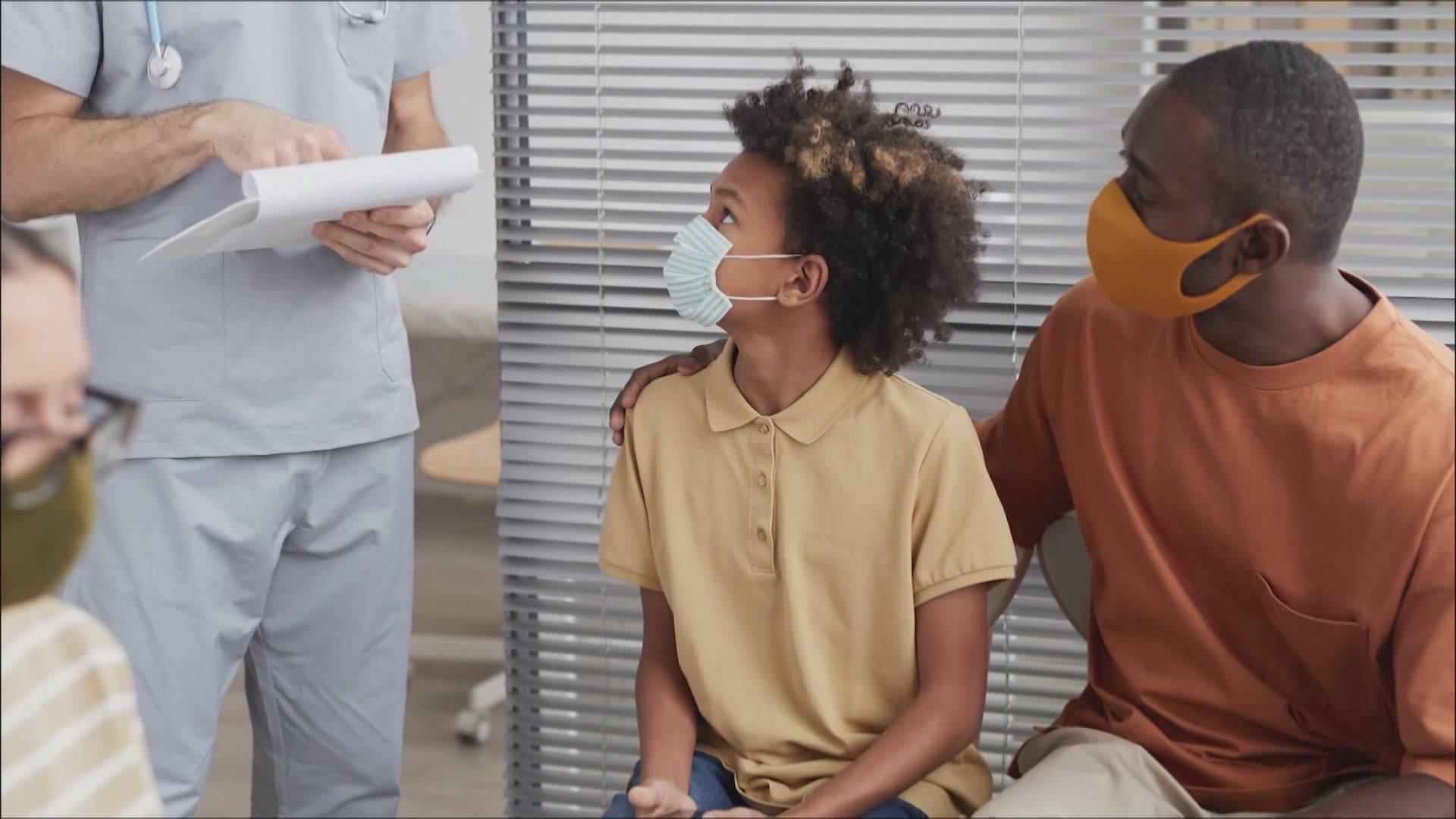FORT WORTH, Texas — Updated following an ACIP meeting on Wednesday.
COVID concerns have dominated a lot of conversations this past year between Rene Alexander and her seven kids.
"It's been a scary year for them," she told WFAA. "They've been pretty anxious about the virus."
They're counting the days until the vaccine is approved for children of all ages.
"As soon as they can get it, I would love for them to have it," Alexander said.
The good news? Just this week, Pfizer's vaccine was authorized for use in children 12 to 15 years old.
RELATED: Here’s what parents should do now that the FDA has authorized a COVID-19 vaccine for adolescents
"We have lots of interest from our families wanting to get their kids vaccinated," said Dr. Jason Terk, a Keller pediatrician in the Cook Children's network.
But Dr. Terk said there's something parents need to keep in mind.
"Because these are new vaccinations, we don't have enough information about how they perform when other vaccinations are given at the same time, or around the same time, as the COVID-19 vaccinations," he explained.
Terk said that means people, including children, shouldn't get other vaccines between the two weeks prior and two weeks after the COVID vaccines. Cook Children's and Terk are urging parents, especially of incoming seventh-graders who have required immunizations, to get all their shots up to date now, like TDAP and the meningococcal vaccine.
The CDC until now has recommended not getting other vaccinations within two weeks of a COVID-19 shot, but on Wednesday, the CDC said it is changing that advice because the COVID-19 vaccines have proved so safe — and that health workers can decide to give another needed vaccine at the same time.
The American Academy of Pediatrics on Wednesday also endorsed the Pfizer vaccine for the 12-and-up crowd, and agreed that it's fine to give more than one vaccine at the same time, especially for kids who are behind on their regular vaccinations.
However, when this recommendation was made Wednesday, some health experts at the ACIP hearing disagreed with changing the guidelines, saying there wasn’t enough data yet to make this recommendation.
Dr. Meenakshi Ramanathan of UNT Health Science Center called the recommendation “controversial” because of the lack of data.
For now, it’s best to speak with your child’s doctor if you’re planning for your child to get the COVID-19 vaccine as well as other vaccinations.
The biggest takeaway: if you want your child to be vaccinated against COVID, you might have to do some planning.
"You absolutely do," Dr. Terk said. "This is the time to get the other things done so you don't have a problem with the blackout period."
Alexander said she is on it.
"We will be making sure they are completely up to date" on vaccines, she said of her kids.
That way, when the vaccine's available for them, they'll be ready.

